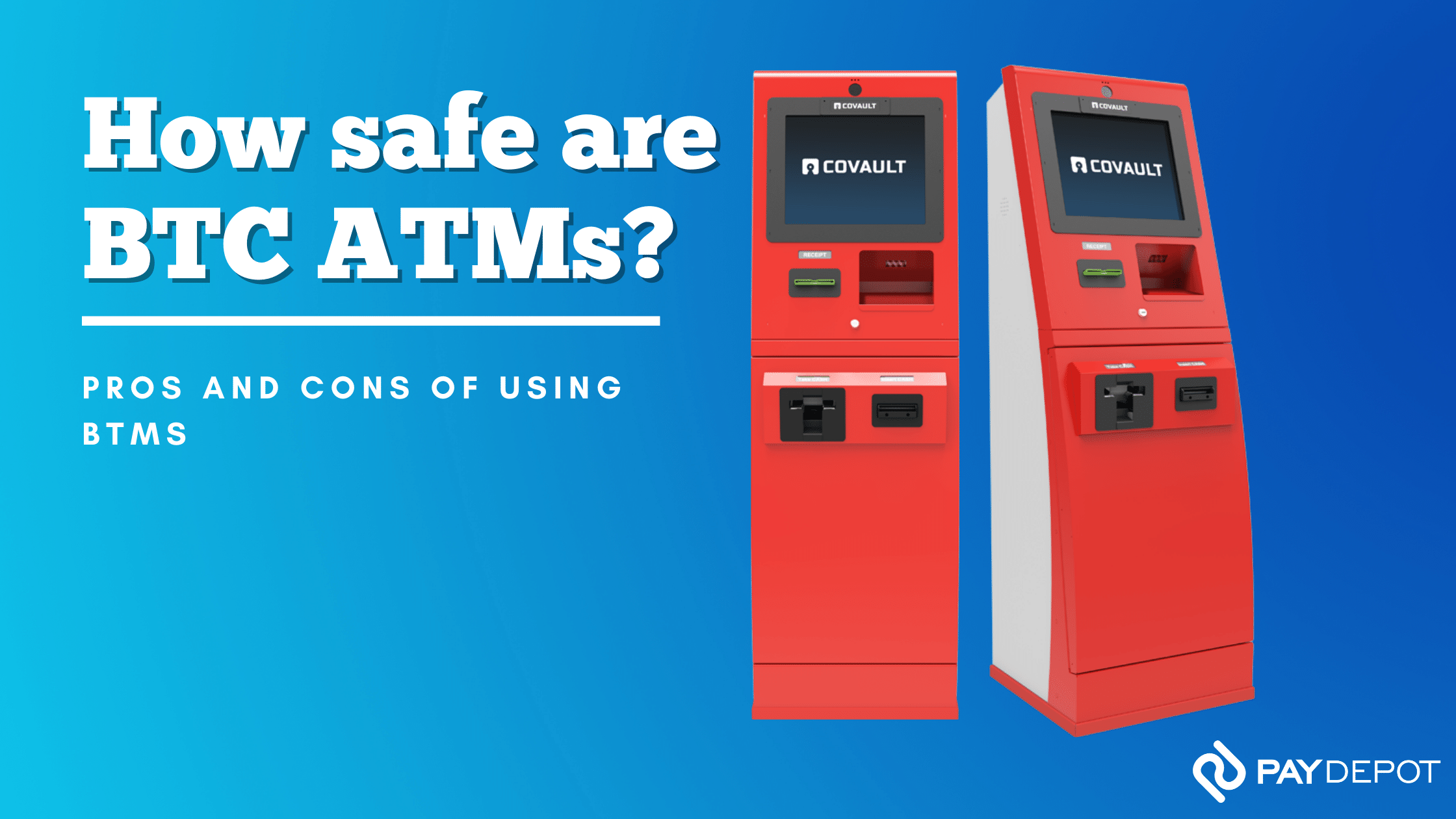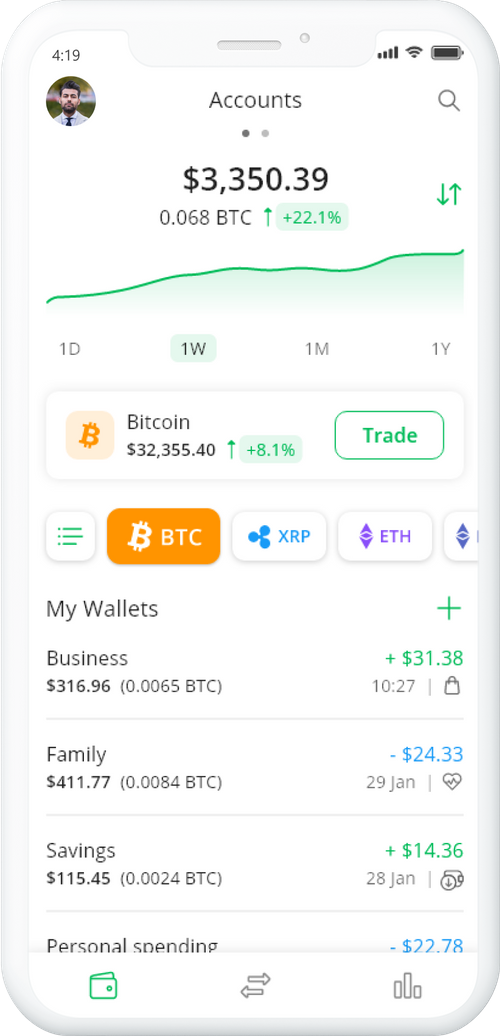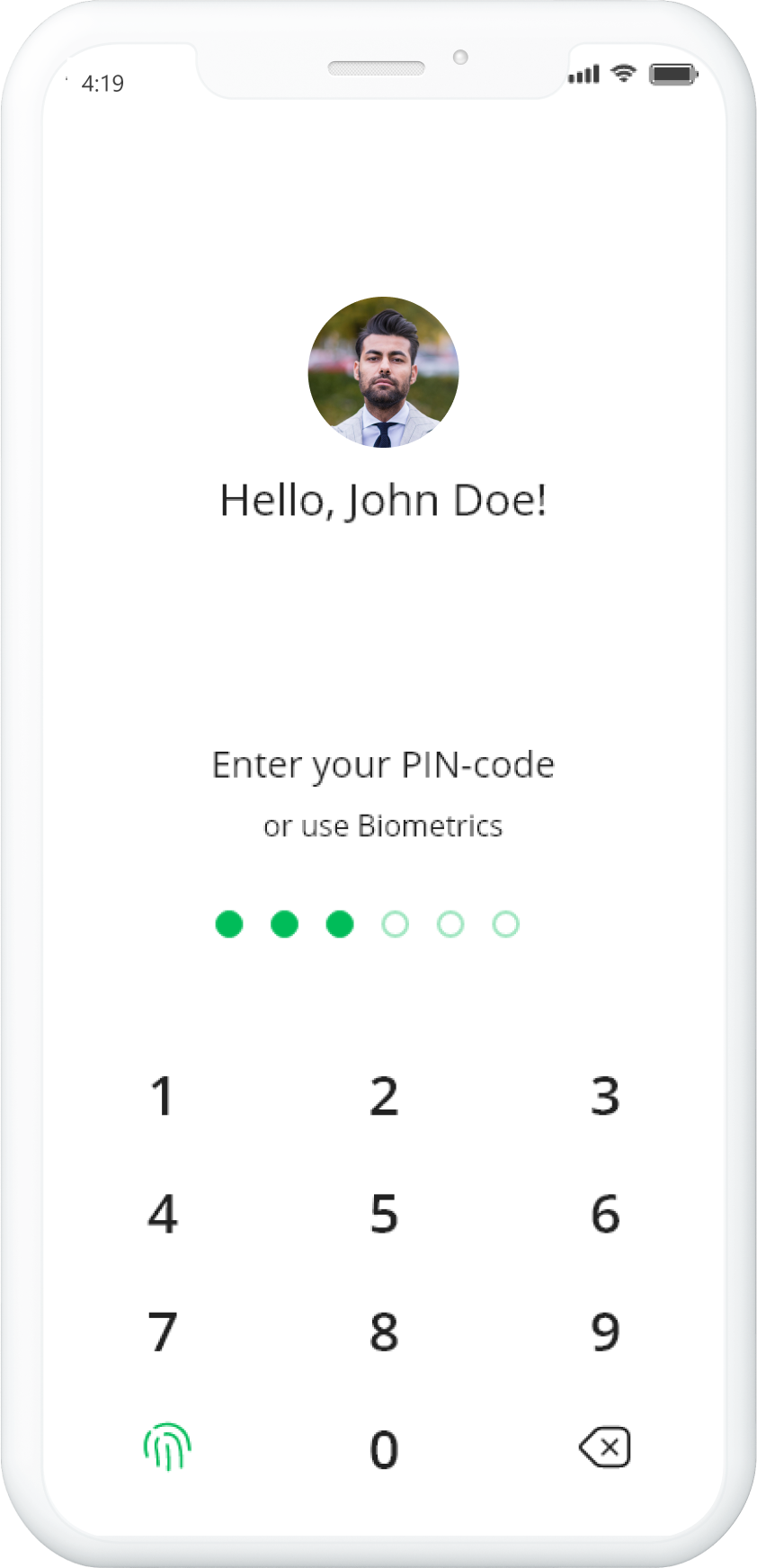Bitcoin ATMs are an exciting development in a cryptocurrency-obsessed world. Popping up in restaurants, convenience stores, gas stations, and cryptocurrency meetups around the world, they offer crypto enthusiasts the opportunity to buy and sell Bitcoin and other cryptocurrencies using cash.
This is a big step forward in fulfilling the initial mandate of cryptocurrency ID as a democratized form of money—it allows the unbanked and underbanked to participate in the cryptocurrency economy.
But when cash changes hands, especially in digital environments, it always begs the question—how secure is the transaction? For that matter, how secure is the transactor? Before you enter your crypto wallet number or your money into one, it’s worth asking the question—are Bitcoin ATMs safe?
Pros and Cons of Using BTMs
Pros
- Exchange Cash for Crypto. Unlike bank ATMs, Bitcoin ATMs (or BTMs) connect directly to a cryptocurrency exchange rather than your personal bank account. After the machine authenticates you and your crypto wallet key, you can enter cash to buy cryptocurrency over the exchange or sell cryptocurrency for fiat currency over the exchange and have cash dispensed in return.
- Fast Transactions. Compared to online cryptocurrency exchanges, transactions on cryptocurrency ATMs tend to post very quickly—often in as little time as five minutes or less.
- Secure Transactions. While the owner of the BTM bears some risk, from the user’s perspective, crypto ATMs are a very secure way to execute cryptocurrency transactions.
Cons
-
Less Privacy. Cryptocurrency ATMs may require ID verification to complete the transaction, up to and including scanning the user’s ID, collecting personal information, or taking a snapshot of their face. Transactions are recorded and available for recall by investigating authorities.
This may seem to violate one of the core value propositions of crypto—anonymity. But a BTM is just like an ATM—susceptible to KYC (know your customer) and AML (anti-money laundering) standards. In exchange for the convenience of using a crypto
ATM, crypto enthusiasts may have to reconcile themselves with less privacy and anonymity.
- High Fees, Low Limits. Fees and limits vary, but in general, BTMs tend to have high fees and low deposit/withdrawal limits.
- Variable Service Quality. Some providers offer high-quality machines and excellent customer service but caveat emptor. It’s not unheard-of to encounter a beat-up machine, with sparse customer service if something goes wrong.
- Vulnerable to Crime. Like traditional ATM machines, BTM machines acquire a reputation for being a place where people show up carrying cash. In these circumstances, “stickup” robbery is always a valid concern.
Are Bitcoin ATMs Safe?
In the early days of cryptocurrency, the only way to exchange cash for Bitcoin was to arrange an in-person meeting between crypto owners using a website like LocalBitcoins.com. The two parties would then meet at a specified location, cash would change hands, and Bitcoin would be transferred between wallets.
Not only was this less convenient, it was inherently dangerous. Meeting a stranger to exchange significant quantities of cash? Better pick a public place.
Crypto ATMs take the meeting-between-strangers risk away from the cash-for-crypto transaction. So, what risks still remain? What safety and security considerations still apply to cryptocurrency ATMs?
Physical Security
Crypto ATMs are like real estate in one way—location, location, location.
Many BTM owners make an effort to place their machines in well-lit areas, monitored by security cameras, with staff members nearby to act as witnesses or to potentially intervene in the event of an emergency.
Under these circumstances, your physical security at a crypto ATM is no different than at a regular ATM under the same circumstances
But carrying cash is inherently risky, and petty criminals know that people standing in front of ATM machines—Bitcoin or otherwise—tend to have cash on their person or will have it soon.
Take standard precautions and exercise common sense if you consider using a Bitcoin ATM located in a high-crime neighborhood, positioned in a dark or secluded place, with no witnesses or security cameras nearby.
Fraud
An instance of transactional fraud at a crypto ATM would involve an unauthorized person gaining access to your account under false pretenses, presumably to sell cryptocurrency from your wallet and walk away with cash.
The first-and-foremost consideration in preventing fraud at a BTM is to carefully guard your cryptocurrency wallet ID and credentials. If hackers obtain this information, they could attempt to make fraudulent withdrawals at a BTM.
However, some cryptocurrency ATMs have measures in place to prevent this, including photo ID verification, selfie-capture, and two-factor authentication. Some BTMs ask you to verify your cell phone number and then send a one-time code by SMS for you to enter into the BTM before you proceed.
BTMs also maintain a record of transactions that authorities can access. This violates many crypto users’ sense of crypto-anonymity, but it allows the BTM owner to comply with KYC (know your customer) and AML (anti-money laundering) laws.
Mobile Wallet Security
Forget for a second about the risk of a fraudster stealing your crypto wallet credentials. What if you, the authorized user, make a transaction? Can a cybercriminal get between you and your crypto transaction and make mischief?
Reputable BTM developers invest heavily in the security of their software and network connections, including end-to-end encryption, best-in-class malware protection, and multi-factor authentication. Accessing a crypto exchange through a BTM is just as secure, if not more so, than accessing the same exchange online.
In 2018 a cyber-security firm discovered an ad purporting to sell malware to hack cryptocurrency ATMs for $25,000. The malware purported to disconnect the crypto ATM from its network and circumvent its security procedures, causing it to dispense cash without debiting a crypto wallet.
The inventor of the cryptocurrency ATM categorically denied the credibility of this claim, stating that no such vulnerability existed. Even if it did, however, the party at risk is not the user but the BTM owner losing cash from his/her machine. Even if a cybercriminal was able to withdraw cash without debiting a crypto wallet, the user would not be affected since no one’s wallet was being drained.
The Safest Way to Buy Bitcoin
PayDepot Bitcoin ATM machines are the most secure way to buy Bitcoin using cash. Our machines adhere to the highest standards of digital security and privacy in compliance with local, state, national, and international regulatory controls.
Our ATMs require users to create an account, authenticate their identity, and verify your mobile wallet credentials by manual input or QR code. Every PayDepot Bitcoin ATM is located in a high-traffic, well-lit public place, so you can easily manage your personal security while you carry cash.
If anything unexpected happens, the PayDepot team is on hand to make it right—you can avail yourself of the highest-rated customer service team in the cryptocurrency industry.



